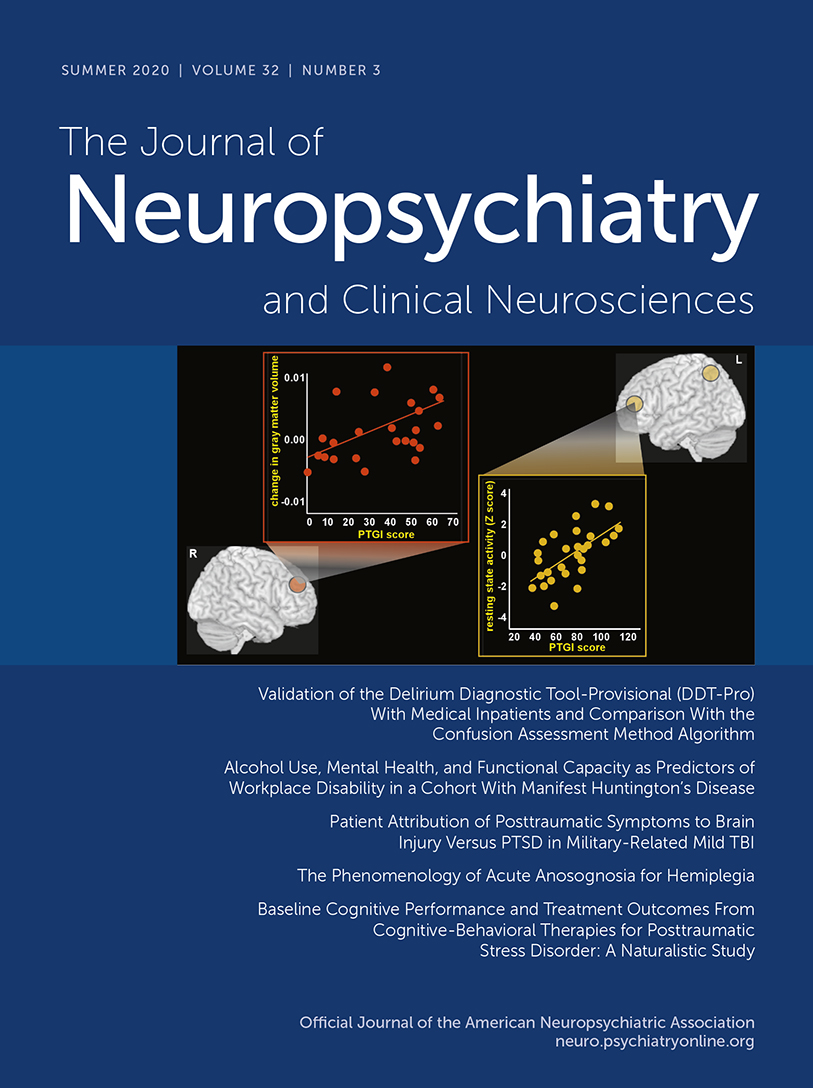Patient Attribution of Posttraumatic Symptoms to Brain Injury Versus PTSD in Military-Related Mild TBI
Abstract
Objective:
Persistent cognitive, somatic, and neuropsychiatric symptoms following mild traumatic brain injury (TBI) are influenced by posttraumatic stress disorder (PTSD), particularly in military patients. The authors evaluated the degree to which military service members with a history of mild TBI attributed posttraumatic symptoms to TBI versus PTSD.
Methods:
Service members (N=372) with mild TBI were surveyed about the severity of posttraumatic symptoms across four symptom clusters (cognitive, affective, somatosensory, and vestibular) with the Neurobehavioral Symptom Inventory (NSI). Participants rated the degree to which they believed TBI, PTSD, or other conditions contributed to their symptoms. Differences in cognitive, affective, somatosensory, and vestibular symptom severity were evaluated across participants with TBI, PTSD, or combined TBI-PTSD attribution. Logistic regression was used to evaluate the association between symptom profiles and attribution.
Results:
Participants attributed symptoms mostly to TBI, followed by insufficient sleep, PTSD, chronic pain, depression, and deployment-readjustment stress. PTSD and combined TBI-PTSD attribution were associated with higher total NSI scores (39.5 and 51.6, respectively), compared with TBI attribution only (31.4) (F=29.08, df=3, 358, p<0.01), as well as higher scores in every symptom category. More severe affective symptoms were associated with decreased odds of TBI attribution (odds ratio=0.90, 95% CI=0.83–0.97) and increased odds of PTSD attribution (odds ratio=1.14, 95% CI=1.03–1.26). A PTSD diagnosis was highly associated with PTSD attribution (odds ratio=2.44, 95% CI=1.07–5.58).
Conclusions:
The nature and severity of posttraumatic symptoms appear to play a role in patient beliefs about the causes of symptoms, whether from TBI or PTSD.



